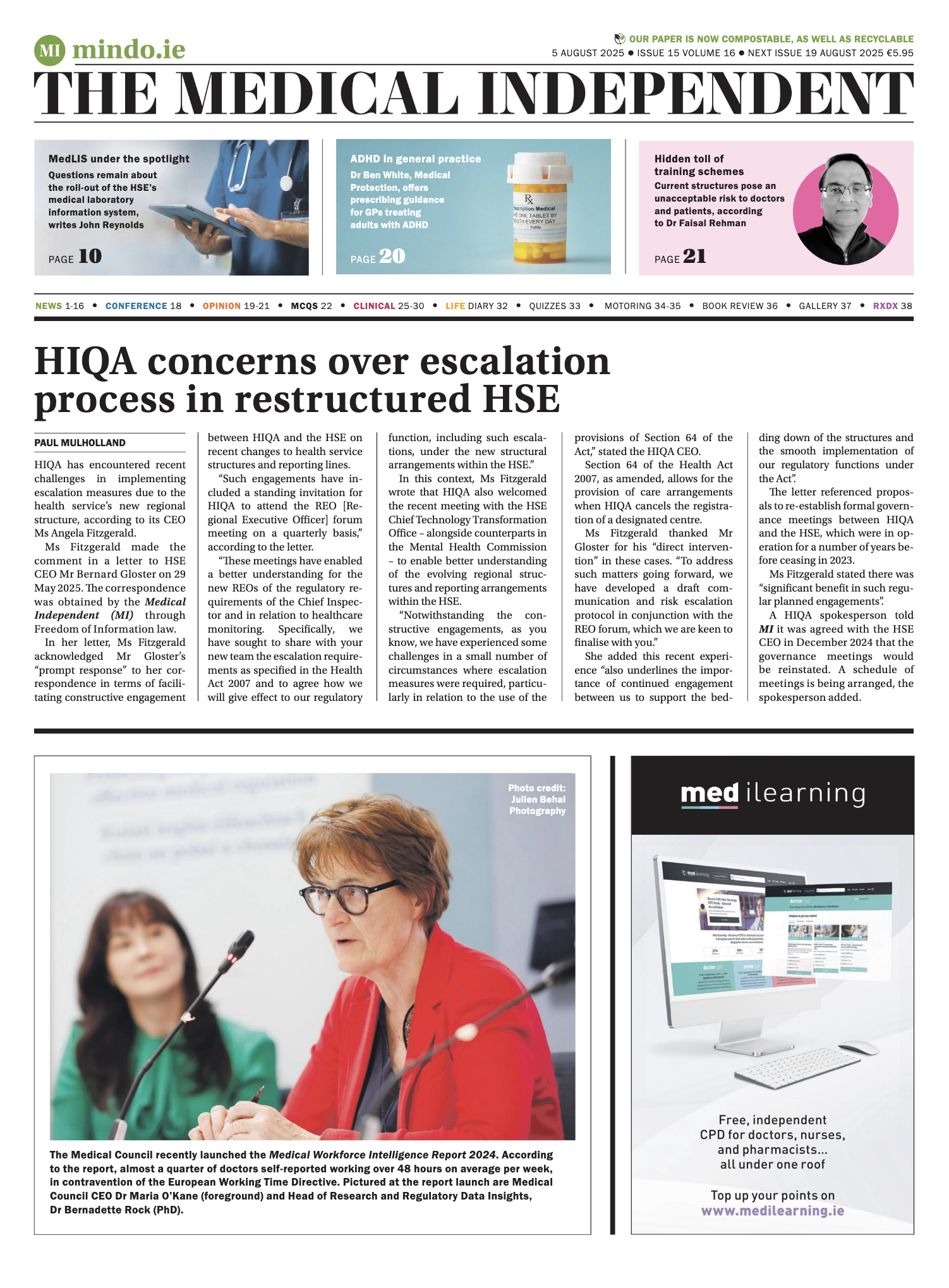The Minister for Health Jennifer Carroll MacNeill has today welcomed the commencement of the non-statutory inquiry into the historical licensing and use of sodium valproate in women of childbearing potential.
The development comes two years after Government approval to establish the inquiry. In June last year, the then Minister Stephen Donnelly announced Ms Bríd O’Flaherty BL as the Chair of the inquiry and stated it would be established within weeks.
Background
Organisation Anticonvulsant Syndrome (OACS) Ireland and Epilepsy Ireland have strongly advocated for an inquiry to determine what State authorities knew about the teratogenic risks of sodium valproate, when this information was known, and why many women were not provided with this information.
The two organisations have also urged improvements in communication to women, stronger implementation of risk minimisation measures, and better supports for affected families.
Valproate-containing medicines have been approved nationally in the EU to treat epilepsy and bipolar disorder and in some countries for prevention of migraine.
While sodium valproate (Epilim) is an effective and essential treatment for some patients, valproate-containing medicines can cause birth defects, neuro-developmental disorders, and autism in children whose mothers are prescribed such medicines during pregnancy. Women and girls who have been prescribed sodium valproate should not stop taking their medicine without consulting their doctor.
Speaking today, Minister Carroll MacNeill said: “I welcome the commencement of the inquiry, which will give those directly affected by sodium valproate an opportunity to have their voices heard. I was grateful to meet with Organisation Anticonvulsant Syndromes Ireland (OACS Ireland) recently and I know this is an important day for them and the families they represent.
“I have every confidence that the Chair will conduct an independent and fair inquiry and finally get answers for those affected and their families.”
The inquiry will examine the historical and current context of sodium valproate use through three distinct strands:
Review Phase
The first strand will be the review phase, which will establish a timeline for the use of sodium valproate in the State in women of childbearing potential, including information on regulation, prescribing, dispensing and safety information issued. The inquiry will seek to document the evolution of sodium valproate regulation and the practices around the control of this product. The inquiry will have responsibility to request documentation and submissions from a range of stakeholders. The Chair will highlight and record difficulties encountered where such requests are refused as part of their reporting function.
Personal Statements
The second strand of the inquiry will enable oral statements from individuals diagnosed with foetal valproate spectrum disorder (FVSD), their mothers and other family members who may wish to participate. Other stakeholders may also be invited to provide oral statements in separate sessions. All sessions will be held in private.
Health Service Capacity
The third strand will focus on assessing the health service’s current capacity to respond to safety issues related to use of anti-seizure medications (ASMs) in women of childbearing potential. It will involve an assessment of the current systems in place to respond, disseminate and implement measures that address safety issues relating to use of sodium valproate in women of childbearing potential; development of other recommendations regarding current control systems for sodium valproate and other ASMs, and the services and supports for those impacted by sodium valproate. The results of this assessment will inform future service development.
A communications campaign will be launched in the coming weeks to raise public awareness and support engagement with the inquiry.













